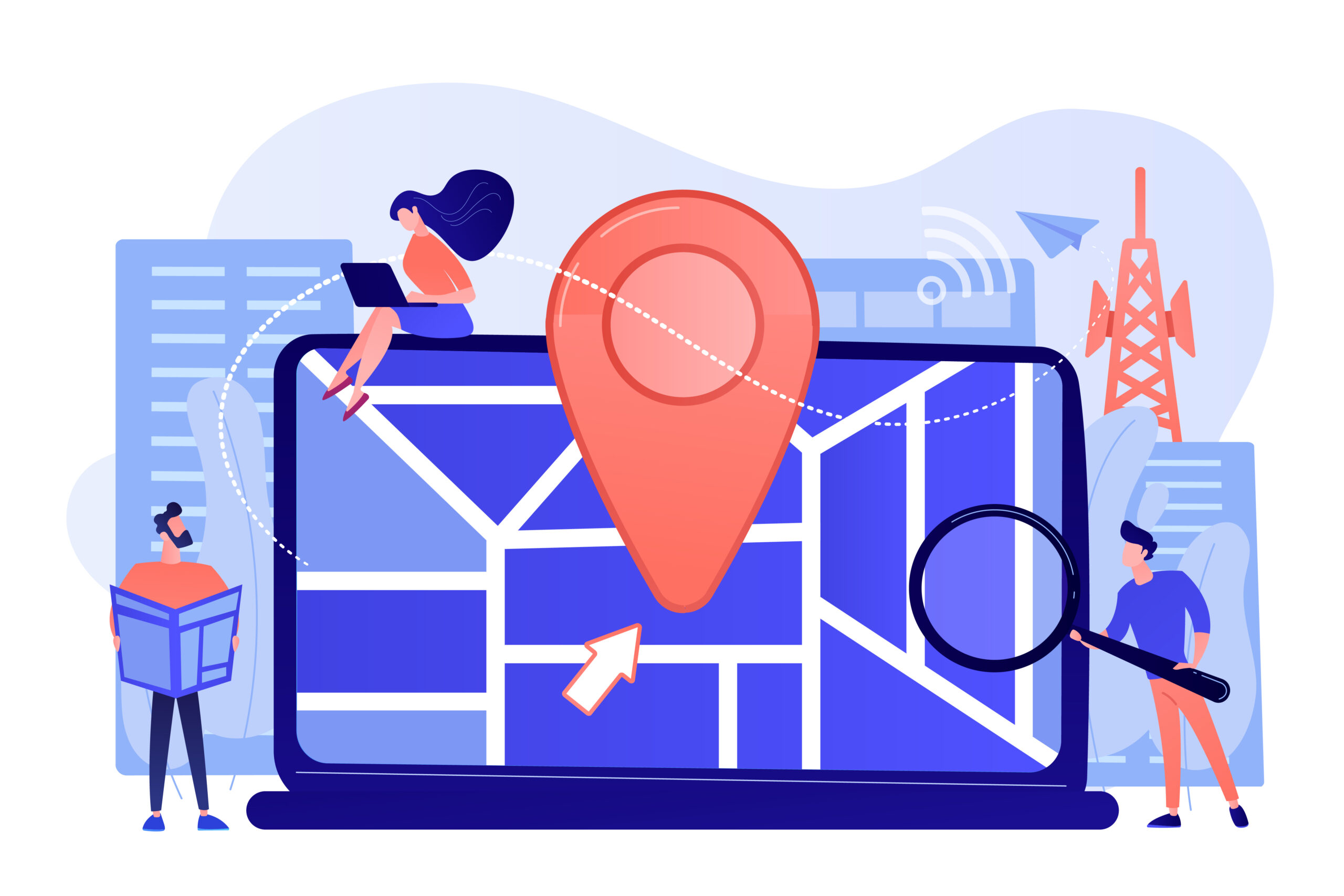In today’s digital age, having a strong online presence is essential for any business that wants to succeed, especially when it comes to targeting local customers. In this blog post, we’ll discuss the benefits of Local SEO, and some tips and strategies for optimizing your business’s online presence for local search. So whether you’re a small business owner looking to attract more local customers or a marketer trying to help your clients improve their local SEO, keep reading to learn more!
Contents
What is Local SEO?
Local SEO (Search Engine Optimization) is the practice of optimizing a website or online presence to improve its visibility in local search results. Local search results are those that appear when a user searches for a product, service, or information in a specific geographical location.
The goal of local SEO is to increase the visibility of a business in local search results, particularly in the Google “Local Pack” or “Maps Pack,” which shows the top three local results. This can be achieved through a variety of strategies, including optimizing the website for local keywords, building local citations (mentions of the business name, address, and phone number on other websites), and optimizing the Google My Business profile.
Local SEO is essential for businesses that depend on nearby customers, such as restaurants, retail stores, and service providers.By improving their local search rankings, businesses can increase their visibility to potential customers, drive more website traffic, and ultimately increase sales and revenue.
Benefits of Local SEO
1- Increased Online Visibility: Local SEO helps your business appear in search engine results when potential customers search for products or services in your area.
2- Targeted Traffic: Local SEO targets people who are actively looking for products or services in your area. By optimizing your website for local search, you can attract highly targeted traffic to your website.
3- Improved User Experience: Local SEO helps you provide a better user experience for your website visitors. By providing accurate information about your business, such as your address, phone number, and hours of operation, you can help potential customers find the information they need quickly and easily.
4- Higher Conversion Rates: When people search for products or services in their local area, they are more likely to make a purchase. By appearing in local search results, you can increase your chances of converting website visitors into customers.
5- Cost-Effective Marketing: Local SEO is a cost-effective way to promote your business online. By optimizing your website for local search, you can attract highly targeted traffic without spending a lot of money on advertising.
6- Competitive Advantage: Local SEO can give your business a competitive advantage over other businesses in your area. By appearing at the top of local search results, you can establish your business as a trusted and authoritative source of information in your industry.
In summary, local SEO is an essential marketing strategy for businesses that want to attract more customers and increase their online visibility. It can help you reach a larger audience, generate more leads, and provide a better user experience for your website visitors.
How to Optimize Your Website for Local SEO
Here are some of the best tips to optimize your website for local SEO:
1- Include your location on your website: Make sure your website includes your business’s physical address, phone number, and email address, preferably in the footer or on the contact page.
2- Create and optimize your Google My Business listing: Google My Business is a free tool that helps businesses manage their online presence on Google. Fill out your business information accurately and completely, including your business name, address, phone number, website, and business hours. Use high-quality images of your business and add relevant categories.
3- Get listed in local directories: Submit your business to local directories like Yelp, Yellow Pages, and other niche directories that are relevant to your industry.
4- Use location-specific keywords: Incorporate location-specific keywords into your website’s content, title tags, meta descriptions, and URL. Use Google’s Keyword Planner tool to identify relevant keywords for your website.
5- Create location-based landing pages: If your business has multiple locations, create individual landing pages for each location. Include unique content and location-specific information on each page.
6- Get customer reviews: Encourage customers to leave reviews on your Google My Business listing and other relevant review sites. Respond to reviews promptly and professionally.
7- Use structured data markup: Use structured data markup to help search engines better understand your business and its location.
8- Optimize your website for mobile: Make sure your website is optimized for mobile devices. More than half of all online searches are done on mobile devices, and Google prioritizes mobile-friendly websites.
9- Use schema markup: Use schema markup to help search engines understand your website’s content. Schema markup can include information such as your business name, address, phone number, and reviews, making it easier for search engines to display this information in search results.
10- Monitor and respond to reviews: Monitor your online reviews and respond to them promptly, whether they are positive or negative. This shows that you value your customers and are committed to providing the best service possible.
11- Create local content: Create blog posts or other content that is relevant to your local community. Include local events, news, and other topics of interest to your local audience.
By implementing these local SEO strategies, you can improve your website’s visibility and increase traffic from local search queries.
Tips for Improving Your Local SEO Rankings
Here are some simple tips to help you improve your local SEO rankings:
1- Claim and optimize your Google My Business (GMB) listing: Make sure your GMB listing is complete with accurate and consistent information about your business, such as your business name, address, phone number, and website. Also, make sure to include relevant categories and high-quality photos.
2- Ensure consistent NAP information: Ensure that your Name, Address, and Phone number (NAP) information is consistent across all your online listings, including your website, social media, and directories.
3- Get listed in local directories: List your business in local directories such as Yelp, Yellow Pages, and local Chamber of Commerce websites. This helps to increase your visibility and credibility in your local community.
4- Get customer reviews: Encourage your customers to leave reviews on your GMB listing and other review sites. Positive reviews can improve your rankings and attract new customers.
5- Use local keywords: Include local keywords in your website content, meta descriptions, and title tags.
6- Use schema markup: Add schema markup to your website to provide search engines with additional information about your business, such as your hours of operation, services, and customer reviews.
7- Create local content: Create content that is relevant to your local audience, such as blog posts, infographics, and videos that highlight local events or attractions.
8- Use social media: Use social media to engage with your local community, share relevant content, and promote your business.
By implementing these tips, you can improve your local SEO rankings and attract more local customers to your business.
Conclusion
Local SEO is a critical strategy for businesses looking to increase their online visibility and reach potential customers in their local area. By optimizing their website, Google My Business profile, and other online listings, businesses can improve their rankings in local search results and attract more local customers.
Some key takeaways from local SEO include:
1- Consistency is key: Businesses should ensure that their name, address, and phone number (NAP) are consistent across all online listings and directories.
2- Google My Business is essential: A complete and accurate Google My Business profile is crucial for ranking well in local search results.
3- On-page optimization matters: Businesses should optimize their website content, titles, descriptions, and meta tags to include relevant keywords and location information.
4- Local backlinks are valuable: Building backlinks from other local websites and directories can help improve a business’s local search rankings.
5- Reviews are important: Positive reviews on Google and other online platforms can boost a business’s local SEO efforts and attract more customers.
Overall, local SEO is an ongoing process that requires time and effort, but the benefits can be significant for businesses looking to attract more customers in their local area.
Q- What is Local SEO?
Ans- Local SEO (Search Engine Optimization) is the practice of optimizing a website to increase its visibility and ranking on search engines for local search queries.
Q- What is SEO?
Ans- Search Engine Optimization (SEO) is a set of practices that focus on optimizing your website for search engines, allowing you to increase your visibility and rankings in search engine results pages.
Q- What are the benefits of local SEO?
Ans- It allows you to reach more of the local audience. With local SEO, there’s a decrease in the competition since you’re only competing against other businesses serving the same area rather than larger companies from across the country.
Q- What needs to be done for local SEO?
Ans- It can be done by creating high-quality content that is relevant to local shoppers and utilizing local citations across several authoritative directories, such as Google My Business.
Q- What tools do I need for local SEO?
Ans- Tools like Google My Business and Bing Places help ensure that your business information is easy to find and accurate everywhere it appears online. Google Analytics helps you measure the performance of your website content so you can make changes where needed.
Q- What tactics need to be used for local SEO?
Ans- Tactics like including location-specific keywords, optimizing your listings on local search directories, and ensuring that your website is optimized for local searches should all be part of the game plan.
Q- What aspects of my website need improvements for Local SEO?
Ans- Firstly, it’s important to ensure that your site is properly indexed and structured. Also, look into building up your business name, address, and phone number (NAP), as well as tracking keyword performance, and creating content relevant to your set geographic targeting radius.


